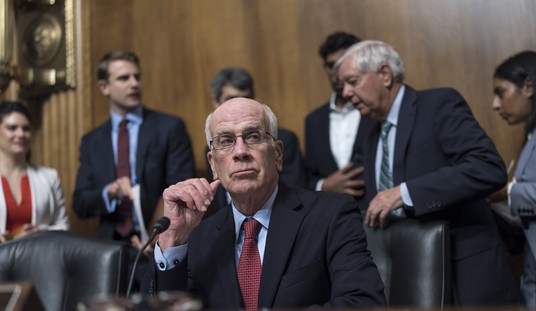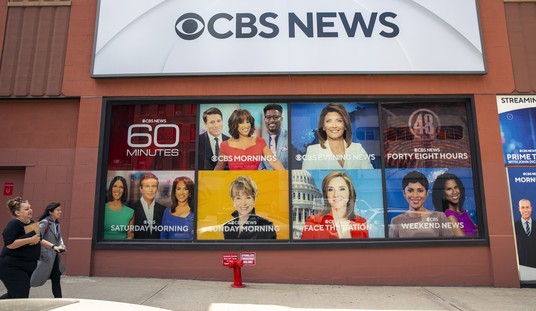Canada and the United States have enjoyed a remarkable relationship over the years. A 5,525 mile land border, if you count the border with the lower 48 and the border between Alaska and the Yukon Territory, and a short stretch of British Columbia. For over 200 years, there has been peace between the two countries, and all that border is guarded, yes, but not militarized. That's a remarkable thing in human history.
But Canada shares a problem with the United States: An increasing political polarization. The Conservatives and the Liberals are staring at each other over a growing divide, and again, like the United States, the rural, agricultural areas of Canada are increasingly unhappy with the liberal tendencies of the cities. And many of those rural areas, especially in the prairie provinces of Alberta, Saskatchewan, and to some extent Manitoba, are more closely aligned socially and politically with the United States than with eastern Canada.
Which brings us to the prairie province of Alberta.
Alberta has its urban areas, including Calgary and Edmonton. Its south is largely agricultural. The north is a vast, largely wild place, extending very nearly as far north as the Great Slave Lake. Driving across southern Alberta makes one feel like a particularly tiny bug crossing a truly expansive plate. Alberta, along with the other prairie provinces, is Canada's breadbasket - and some Albertans are talking about leaving Canada. What's more, they have found some allies in another restive province, a province that has had elections before on leaving Canada, and with whom one would think that Alberta would have little in common: Quebec.
The two could not, on the surface, be a less likely match. Alberta is a Western, evangelical, English, carbon-fuel-producing, low-tax enclave of conservative-leaning individualists, while Quebec is an Eastern, secular, high-tax, progressive province built on a collectivist foundation of preserving the French language and culture, and which in 2022 became the world’s first jurisdiction to ban new oil and gas exploration.
Alberta is a proud “have” province, having only twice received equalization payments from Ottawa – and that was in the 1960s, before the first oil sands boom. Its residents enjoy by far the highest median after-tax family incomes in Canada, and have the lowest median age – 38.2 years, according to Statistics Canada.
And Quebec? It has received equalization payments every year since the program began in 1957; its estimated take in 2024 is $17.1-billion, or 60 per cent of the total, according to Finance Canada. It also has one of the highest median ages in Canada, at 43.2 years. (The Canadian average is 40.9.)
This seems much more like an alliance of convenience than anything else. But how easy would it be for Alberta to go it alone? An independent Alberta, after all, would be landlocked, hemmed in by the United States on the south, Saskatchewan on the east, British Columbia on the west, and the Northwest Territories on the north. But a newly independent Alberta would have a few cards to play in arranging trade deals with its neighbors.
First, that lovely flat border with the United States. Alberta isn't just an agricultural province; it's an energy-producing province, with massive reserves of gas and oil. Ottawa has invested in the "green energy" deal, but an independent Alberta may opt for a more aggressive approach, such as "Drill, Baby, Drill," and it has a huge, energy-hungry neighbor to the south. If Alberta were to vote to go it alone, it's a safe bet that President Trump would be anxious to make a deal - and pipelines would spring up like prairie wildflowers in May.
Second, Alberta has an advantage in dealing with Canada: rail traffic. All of Canada's east-west transcontinental rail lines run through Alberta, with a primary east-west line passing through Medicine Hat, Calgary, and proceeding on to Vancouver in British Columbia. There is already a spur north to Edmonton, and another south to the U.S. - Canada border crossing into Montana at Sweet Grass/Coutts. So inter-Albertan trade and trade with the United States would be serviced, and an independent Alberta would have Canadian rail traffic in a headlock.
Read More: Watch: Trump on Fire, Cracks Up Canadian PM and Press During Oval Office Gathering
An independent Alberta, though, would probably have to go it alone. Amusing as it would be to see Alberta join the United States and bring the Northwest Territories, northern British Columbia, and the Yukon along, giving us an uninterrupted, no-customs-required pathway from the lower 48 to Alaska, that isn't likely, especially when one takes a look at the 2025 election results. Alberta voted heavily Conservative, as did most of British Columbia outside of the Vancouver area, which unfortunately has a large enough population to negatively affect that province's politics, in much the same manner that America's big blue cities can dominate an otherwise red state.
But the Territories are Liberal strongholds.
Canada's federal government is starting to take the Alberta separatist movement seriously, and some are touting a Canadian version of "Drill, Baby, Drill" to keep Alberta Canadian.
(Alberta) Premier Danielle Smith says that if Prime Minister Mark Carney backs Alberta’s energy sector it could stall her province’s independence efforts — a movement she blames Justin Trudeau for igniting.
“I’ve told Prime Minister Mark Carney that Justin Trudeau created an independence movement in Alberta and he can take the wind out of it,” Smith told a news conference Tuesday morning in Ottawa after meeting with Carney Monday afternoon.
Would that be enough? And will PM Carney see the wisdom in unleashing Alberta's energy sector? That remains to be seen, but Ottawa hasn't shown a great deal of any manner of wisdom in the last few years.
A Canadian province can technically vote to secede from Canada, but there's more to the process than that; there are specific requirements as to how any such referendum must happen and what would constitute a "clear majority." At the moment, according to polls, there is no such clear majority. The movement seems to be growing, however, and it's enough that it has the province's premier a little worried.
It's enough to make one wonder if President Trump might offer to help in negotiations. An energy-rich, friendly nation on our northern border wouldn't be the worst thing.














